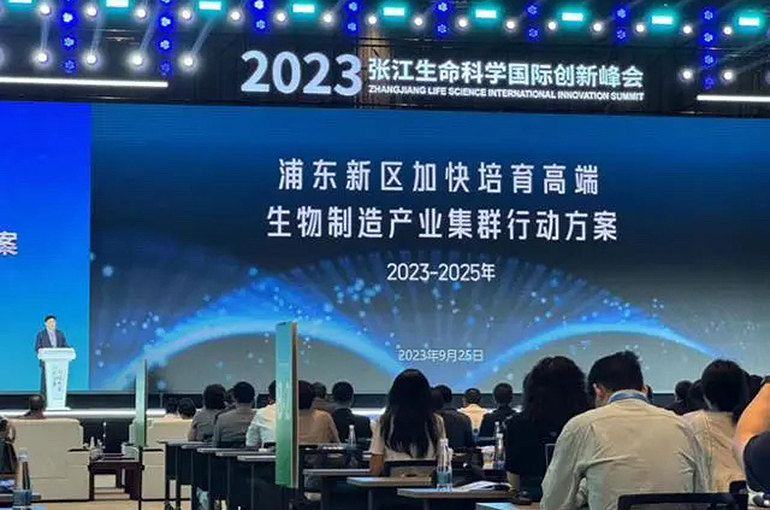 Shanghai’s Pudong New Area Issues New Policies to Lure More Biotech Firms
Shanghai’s Pudong New Area Issues New Policies to Lure More Biotech Firms(Yicai) Sept. 26 -- Pudong New Area, the special economic zone of Shanghai, has brought out new policies to attract more high-end biotech companies, with plans to provide two million square meters of space for the industry's development over the next three years.
By the end of 2025, Pudong aims to attract or incubate 10 leading firms and add three to five listed companies, 50 startups, and 10 corporate research and development centers to the local biotech sector, Ling Gang, chief engineer on its technical and economy committee, said at the release of the policy document at the Zhangjiang Life Science International Innovation Summit yesterday.
Pudong also intends to lure more than three biotech teams led by top scientists to settle in the district, build three to five highly capable innovation entities and common services platforms, and achieve R&D breakthroughs in some crucial technology and equipment materials, Ling noted.
To accomplish these goals, Pudong will provide policy and institutional guarantees for building cross-area innovation networks and market access and demo application of innovative biomanufactured products, Ling added.
Shanghai is one of the fastest-growing Chinese cities, said Alex Zhavoronkov, founder and chief executive of Insilico Medicine, an innovative drugmaker that uses artificial intelligence technologies, which settled in Shanghai in 2019.
If a company wants to be a global leader in the biotech industry, it needs to deploy in Shanghai because the city’s environment for industrial development resembles Boston, Basel, and other places that focus on biomedicines, he added.
Situated to the east of the Huangpu River, the Pudong New Area covers more than 1,200 square meters, stretching from the river to the East China Sea, and encompasses the Zhangjiang High-Tech Park, Lujiazui Finance and Trade Zone, the Port of Shanghai, Shanghai Pudong International Airport, and the Shanghai Free Trade Zone.
China likely invested over USD5 trillion in biomedicine, contract research organizations, and infrastructure building over the last 20 years, Zhavoronkov told Yicai. Shanghai, especially Pudong's Zhangjiang area, hosts most of China's CROs and high-quality talent, he pointed out.
Pudong has become an area with the highest concentration of firms in the biomedicine sector, the most complete industry chain, and the most prominent new drug achievements, according to data shared at the summit.
Last year, its biomedicine industry was worth CNY330 billion (USD45.2 billion), with 15 percent of China's original new drugs and 10 percent of the country's innovative medical apparatus and instruments developed there.
Editors: Tang Shihua, Martin Kadiev